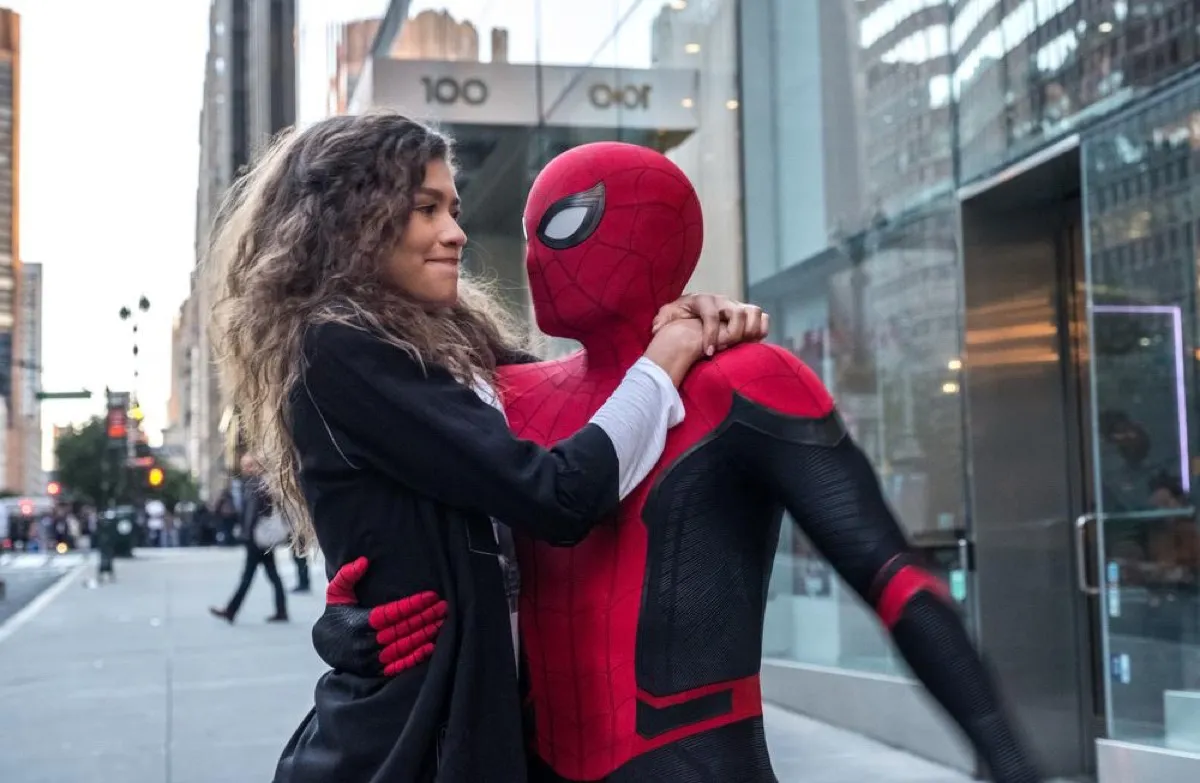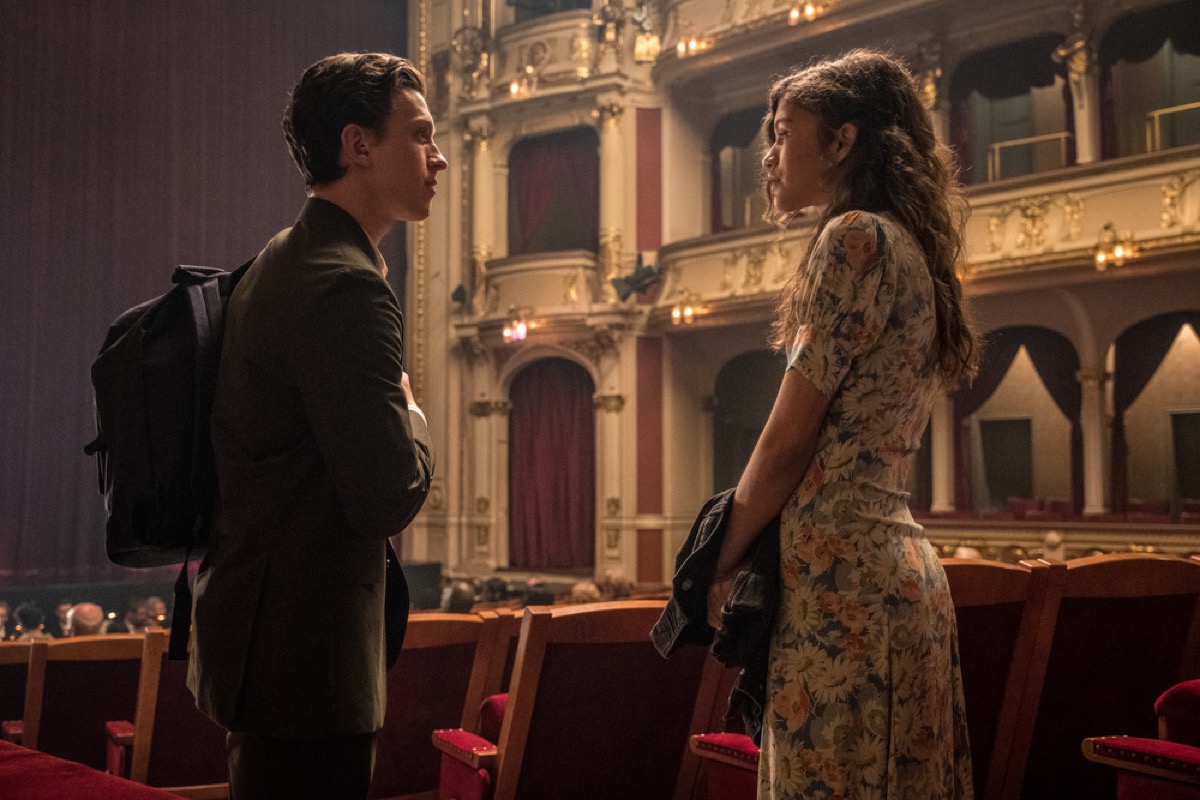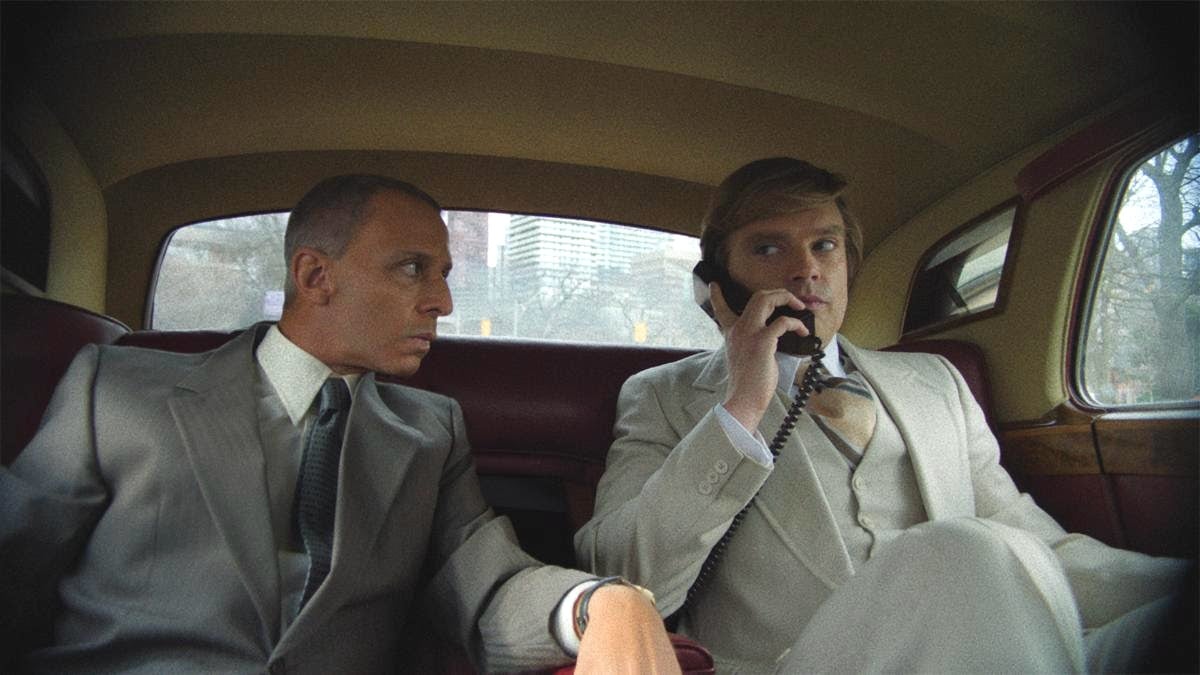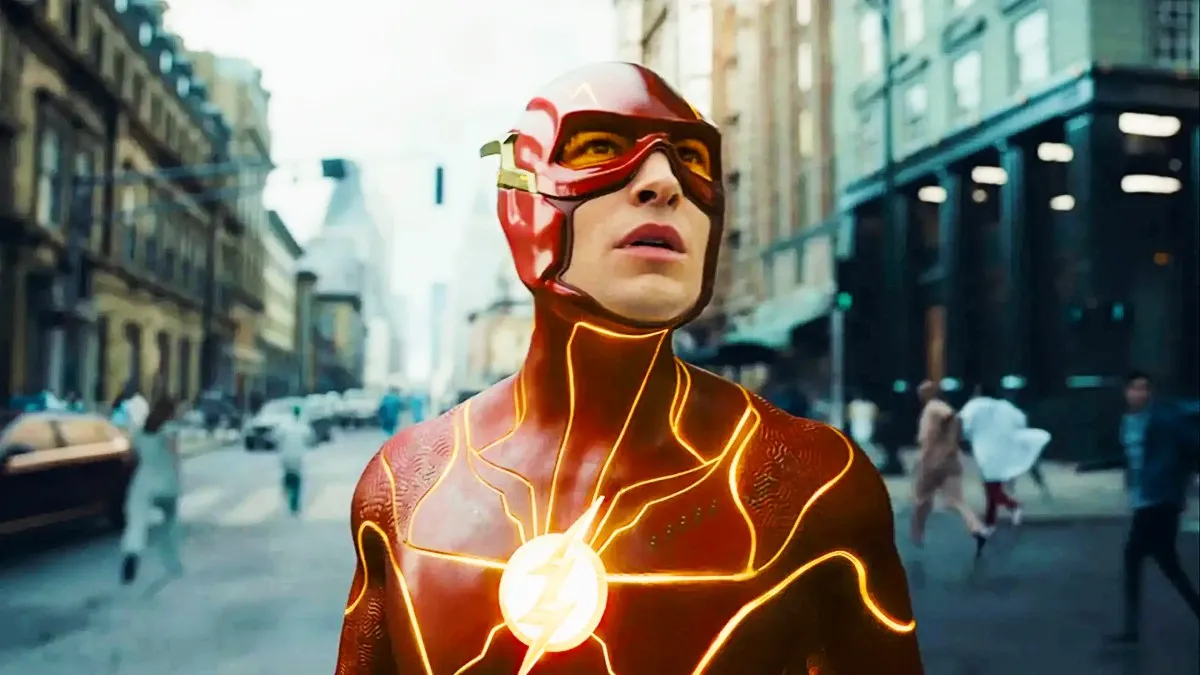**Spoilers for Marvel and Sony’s Spider-Man: Far From Home.**
Romance has always been a fairly large component of the superhero genre, especially with recognizable superheroes like Superman, The Flash, and of course, Spider-Man. Lois Lane, Iris West, and Mary Jane are all well-known in their own right. Admittedly, the Marvel Cinematic Universe has largely neglected romance as an important storytelling facet. In fact, it’s one of the weakest aspects of their shared universe.
This isn’t to say that it doesn’t exist at all (Tony Stark and Pepper Potts say hello), just that Marvel hasn’t been very good at delivering on romantic relationships in a way that’s satisfying or fully integrated into their films. However, Spider-Man: Far From Home changes that as the film finally gives focus to Peter Parker (Tom Holland) as a romantic hero, and his plans to pursue MJ (Zendaya) provide for a sweet subplot that spans the entirety of the film. Thus, the MCU finally gives romance its due in Spider-Man: Far From Home.
For all that Far From Home attempts to turn Peter into an Avenger, he stands apart from the others on the team. Unlike Captain America or Iron Man, who are often portrayed as larger-than-life icons, Peter is the everyman—the grounded, sweet, but hardworking kid from Queens who doesn’t come from a background of wealth, nor does he specifically feel the pull to do something exceptionally heroic. He’s just a regular teenager who has powers and tries the best that he can to do good.
Besides using his superpowers to protect New York City’s citizens, Peter puts his friends and family first. That’s made very clear in the film, when all Peter wants to do is get through his school trip to Europe and tell MJ how he feels. In many ways, Peter supplants the idea of the traditional male hero by wearing his heart on his sleeve. He’s allowed to be emotional, and this strengthens his character, rather than diminishing it. He also gets to have a life outside of his superhero duties, as signified by the plethora of Spider-Man’s supporting characters. They’re so strongly ingrained into the story that the film wouldn’t work half as well without them.
MJ has always been integral to the fabric of Spider-Man’s mythos, having been in every iteration of Spider-Man’s story, from the animated series to Sam Raimi’s Spider-Man trilogy and Into the Spider-Verse. The character was even meant to appear in The Amazing Spider-Man 2, with Shailene Woodley cast in the role, but her scenes never made it into the film. In Far From Home, MJ proves to be a good companion for Spider-Man by embodying the realism that helps to make Peter such a relatable character.
What sets Far From Home apart from any other MCU film is that it includes many elements employed by romantic comedies. Peter tries to “woo” MJ several times but is always interrupted or has to leave during conversations to take on the Elementals. The film comes close to a full-on love triangle as Brad Davis (Remy Hii) vies for MJ’s affections.
Later, Peter is caught with his pants down in a “this isn’t what it looks like” scenario that Brad threatens to tell MJ about, so as to drive her away from Peter. For some of the movie, Peter’s primary antagonist is Brad, who serves as a romantic nemesis, solidifying the romcom tropey-ness. The conflict is also a reminder that Peter is still very much a teenager.
Peter and MJ are obviously smitten with each other, and their interactions are engaging and adorable as they stumble through conversations and share longing looks and missed opportunities to spend more time together. Peter is awkward and rambles when he’s around MJ, but damn it, all he wants is to ask her out, and it’s so earnest, endearing, and churns out some of the film’s more genuine moments.
There’s also some second-hand embarrassment, but it’s the good kind. It’s schmoopy in the best way. Meanwhile, MJ is still as observant as ever, delivering sarcastic one-liners like it’s her mission in life, but she gets to express a variety of feelings too, shyly sharing her feelings for Peter and openly admitting the reasons for why she can be distant.
And because there’s enough focus on the romantic subplot, Far From Home is able to bring MJ further to the forefront. She becomes an active participant in the plot, especially in the second half of the film, after revealing she knows Peter’s Spider-Man. That sets off a chain of events that leads them to unlocking the mystery of Mysterio and how to find him. Thankfully, the film keeps away from the age-old idea of “protecting” the romantic interest by keeping her in the dark about the hero’s identity. In fact, Far From Home is able to turn the revelation into a nice comedic moment between them.
By leaning into the romance angle and subverting the stereotypical secret-keeping trope that has plagued love interests in the superhero genre since its inception, the film manages to embed MJ further into the narrative, with more ease. It gives MJ a chance to be more of a partner to Peter instead of standing on the sidelines. Far From Home reclaims the idea that romance can exist in a superhero movie in a meaningful way, not just as a throwaway addition. By focusing on Peter and MJ’s budding relationship, the MCU finally services the romantic subplot in an authentic way, and it’s all the better for it.
(images: Sony)
Mae is a Tomatometer-approved film/TV critic, freelance writer, editor, and podcast co-host. She’s very passionate about sci-fi/fantasy, diversity and representation in media, wine and guacamole.
Want more stories like this? Become a subscriber and support the site!
—The Mary Sue has a strict comment policy that forbids, but is not limited to, personal insults toward anyone, hate speech, and trolling.—










Published: Jul 5, 2018 04:00 pm